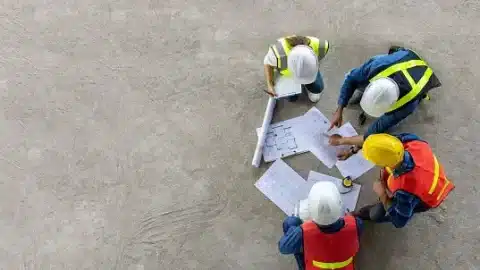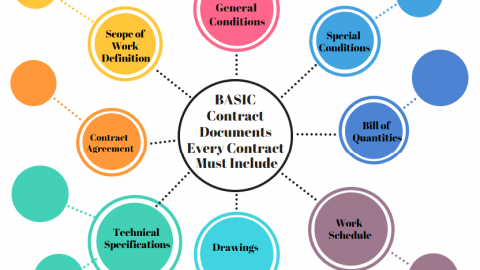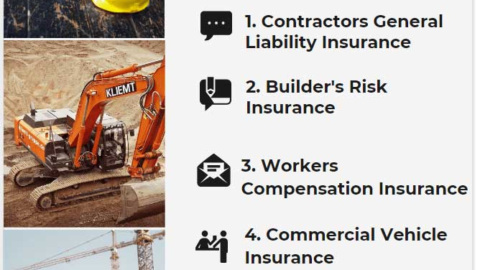What Are You Doing About The Construction Skills Shortage?
Most contractors in the construction industry complain they cannot find good and skilled workers. A lack of skills is often blamed for poor quality, unsafe practices, poor performance and schedule slippage. The construction industry is desperate for skilled and experienced people. Good skilled people are essential for the success of your construction project! Therefore, it is necessarry to improve construction worker skills
Table of Contents
But where do trained and skilled people come from? Who is responsible for training people in construction?
Many contractors expect to find skilled experienced people simply waiting to be employed. But, in many cases they aren’t available. So what happens? Well contractors make do with poorly skilled people which leads to problems on their construction projects. Or they employ fewer people – stretching their managers and crews to cover the shortfall of skills – which of course also leads to problems.
Few contractors are willing to train people, or employ inexperienced people. Providing construction skills seems to be someone else’s problem. Giving workers construction experience to hone their skills is somebody else’s responsibility. So, how to improve construction worker skills and who is responsible for training in the construction industry?
Why Contractors Don’t Train People, And Why They Should in The Construction Industry
I hear all kinds of excuses for not training, the most common is that there isn’t time and we can’t spare the person for a few days or weeks to attend a training course.
Other excuses include, training is expensive, or once the person is trained they’ll want a pay increase, or they’ll leave the company when they’re better qualified. Sure, training does take time and cost money, and sometimes employees will ask for a pay increase when they’re qualified, and some may even leave the company for a better job. But the benefits of training far outweigh these excuses. Indeed, a trained and skilled construction worker is a valuable asset to the company. A skilled worker is safer, more productive and produces better quality than a less skilled worker – so yes, maybe the person will deserve a pay increase when they’re successfully qualified and proved their skills have improved.
But the benefits go further than this. Employees that receive training often become more motivated because they sense the company sees a future in them and is prepared to invest in them. Certainly, some newly trained individuals will leave the company, but many become more loyal, since they appreciate the company investing in them. When workers see the company is training employees they often become more motivated, working harder so that they can be selected for training. Indeed, I’ve had huge success by training my team, and I’ve been rewarded with their improved skills, loyalty, and diligence. Training helps contractors retain skilled people. I know that I am only as strong as my team, and a skilled loyal team helped me to the successes I achieved.
Sometimes contractors only look at the short term. They don’t plan for the next project, for next year and the years after that. They’ll say it’s pointless training someone because there might not be a next project. But guess what, there usually is a next job, then there’ll be the same excuse again, and guess what, there’ll be another project! So why battle from one project to the next with poorly skilled workers. Indeed, having good skilled workers will probably help the contractor get further projects. Skilled workers enhance a contractor’s reputation, and improved productivity from skilled workers will ultimately reduce the company’s costs, resulting in the contractor submitting more competitive prices and winning more work.
Training For The Right Reasons
Obviously, training is key to improve construction worker skills. Of course training must be done for the right reasons. It must be training in a skill which the person doesn’t have, and also a skill that the company can use on the project, and hopefully on following projects.
Effective training is dependent on a number of factors. Firstly, the person must want to receive training. Training a reluctant trainee is usually a wasted effort. Importantly, the trainee’s direct supervisor or manager must be prepared to utilise the person’s newly acquired skill, which includes mentoring and coaching the person further. Regrettably, many training programs only provide the theory and basic training, but this is of little use without further practical on the job training and an opportunity to practice the newly learned skills. Newly learned skills are wasted and quickly forgotten when they aren’t utilised.
Right Training To Improve Construction Skills
Unfortunately, not all training courses and providers are what they should be. There are many poor trainers. So check that the course will provide the desired end result. Some providers can modify their courses to include things that are more suitable to your project’s and company’s needs. When the trainee returns to work quiz them to find out what they thought of the course and the provider. Poor feedback means you should avoid sending others on the course.
Training doesn’t always have to be courses held away from the project. Some providers are willing to provide training on the project. This is useful since part of the practical training outcomes is usually contributing to the project’s progress.
Another valuable form of training is onsite mentoring. Now I know that construction managers and supervisors are always busy and seldom have time for another task. But, every time you find a fault, show the person the right way to do the task. Sure, it takes a little more time, but hopefully the person won’t repeat the mistake. Providing feedback to your team is a form of training. Take time to explain how and why things should be done in a particular way. Of course leading by example is an essential part of mentoring.
Solving the Construction Skills Crisis is in Your Hands
Sure, training someone takes time, it doesn’t happen overnight. I know you need skilled people now. But poaching skilled people from other contractors by offering them more money is a zero end game, where all contractors lose. The average age of those in construction is increasing. If we don’t start training the next generation of construction workers now the skills shortage will only worsen.
Training is not only about training artisans and operators. It’s also about training the next generation of managers, supervisors, superintendents, foremen, and project managers.
We all reached our management positions because our managers saw potential in us and provided training, guidance, mentoring and opportunities to learn. We must offer the same, and even better opportunities to the next generation. Improving the available worker skills in the construction industry is in our hands. We must train and mentor the next generation. It is the way to solve the skills shortage in construction, together with retaining the skilled people we have, and attracting new entrants into the industry.
See Also
Construction Scheduling Software

Paul Netscher, a construction professional with 30 years’ experience and author of several practical construction management books, including ‘Successful Construction Management: The Practical Guide’ and ‘The Successful Supervisor and Foreman’ and ‘Construction Claims: A Short Guide for Contractors’, available on Amazon and other online stores in paper or ebook.
Visit www.pn-projectmanagement.com for more articles and information.










